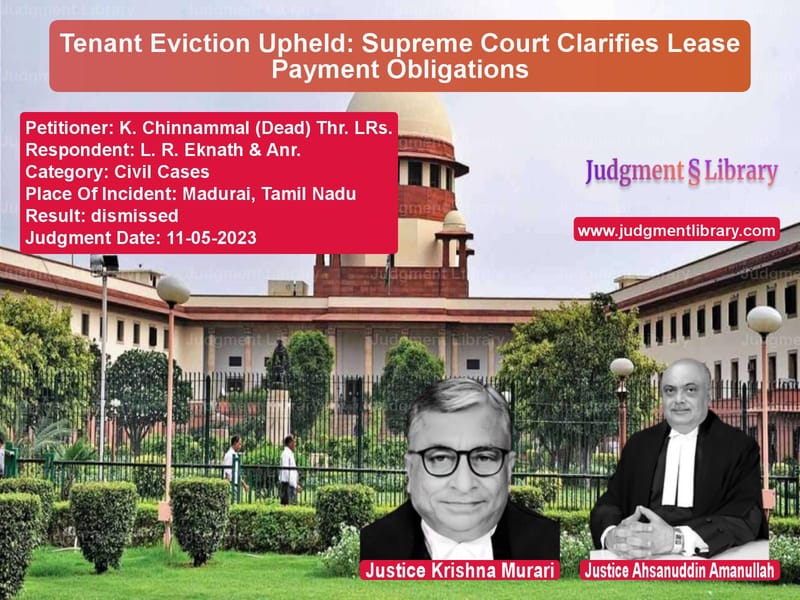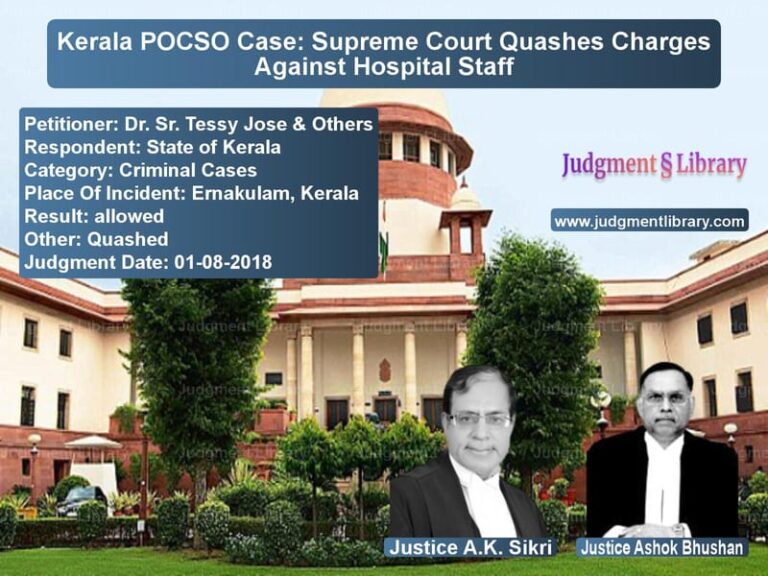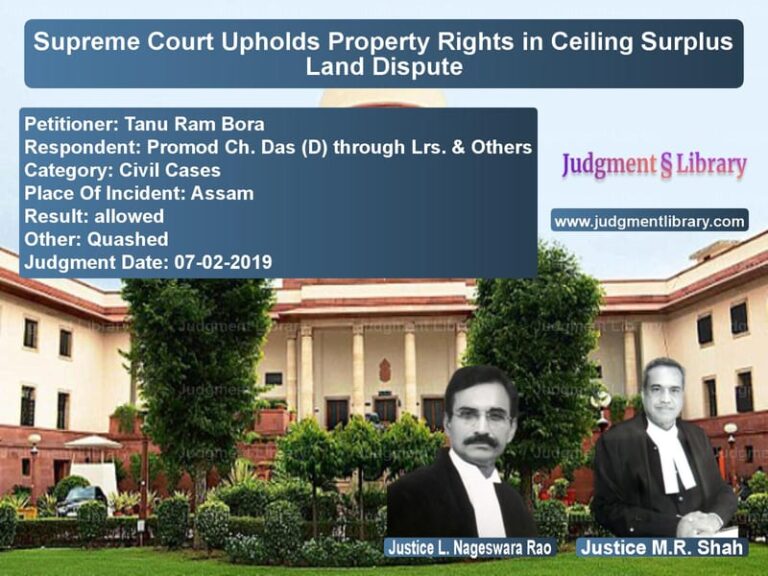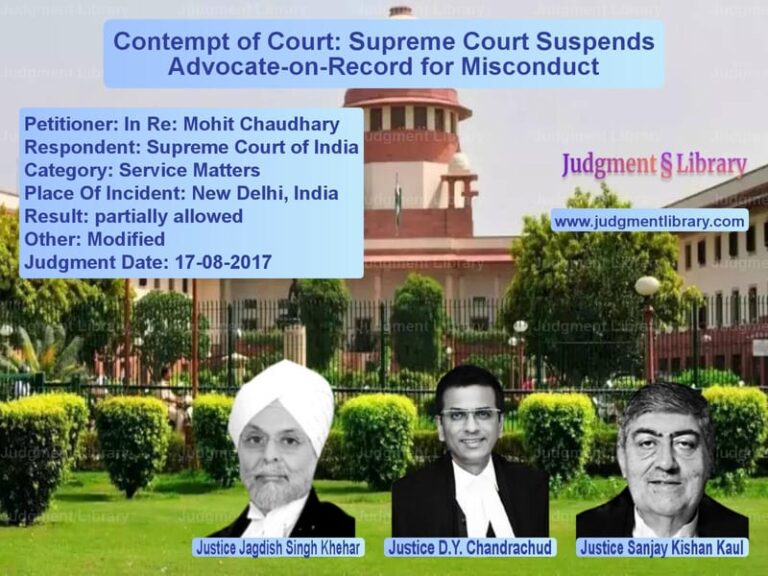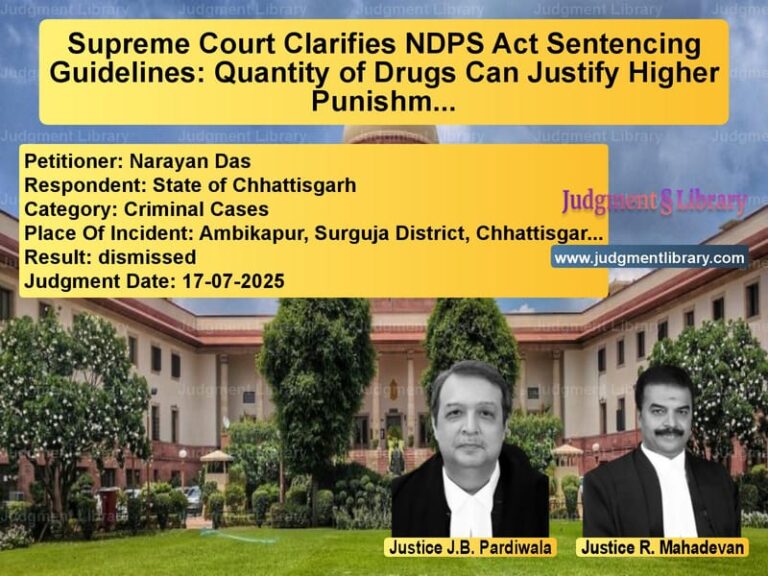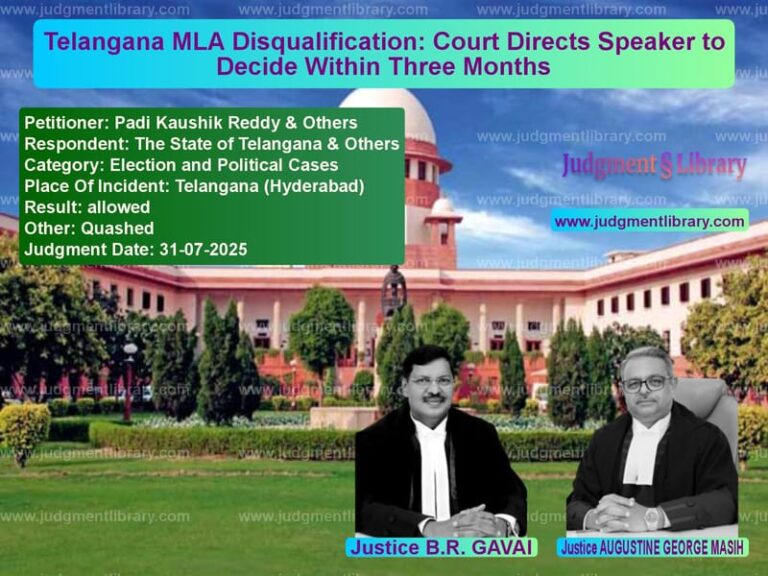Tenant Eviction Upheld: Supreme Court Clarifies Lease Payment Obligations
The case of K. Chinnammal (Dead) Thr. LRs. vs. L. R. Eknath & Anr. addresses a significant legal dispute concerning tenant eviction due to non-payment of lease rent. The Supreme Court examined whether the eviction order was justified in light of the tenants’ failure to comply with payment directives issued by the Revenue Court.
Background of the Case
The dispute originated when the respondent, L.R. Eknath, filed a petition before the Revenue Court, Madurai, seeking eviction of the appellants for non-payment of lease rent from 2009 to 2014. The respondents claimed that the appellants had failed to pay lease rent for six years, despite being obligated to provide 10½ bags of paddy (each weighing 65 kg) annually.
On February 4, 2019, the Special Deputy Collector, Revenue Court, ordered the appellants to pay 31½ bags of paddy or an equivalent amount in cash within two months. Failure to comply would result in eviction proceedings.
The appellants, however, deposited the lease rent amount only on February 18, 2021, well beyond the prescribed deadline. As a result, the respondents filed an eviction petition, which was allowed by the Revenue Court on December 3, 2021. The appellants then challenged the eviction order before the Madras High Court, which upheld the eviction.
Displeased with the High Court’s decision, the appellants approached the Supreme Court.
Appellants’ Arguments
The appellants contended:
- They received the Revenue Court’s order only on October 10, 2020, and had two months from that date to make the payment.
- They sent a legal notice on November 6, 2020, expressing readiness to pay and requesting the respondents to come forward with all legal heirs of the original lessor to collect the lease rent.
- The respondents delayed their response and imposed unnecessary conditions, causing further delay.
- The appellants eventually deposited the lease rent amount in the Revenue Court on February 18, 2021, before the eviction petition was filed.
- The delay in payment was minimal and occurred during the COVID-19 pandemic, which should be considered a valid justification.
Respondents’ Arguments
The respondents countered:
- The appellants were directed to pay the lease rent within two months of receiving the order but failed to do so.
- The appellants’ legal notice was a delaying tactic rather than a genuine attempt to make payment.
- Even when the appellants eventually deposited a portion of the rent, they still failed to pay the full amount.
- The eviction order was legally sound, as the appellants had defaulted on their obligations for multiple years.
Supreme Court’s Observations
The Supreme Court analyzed the facts and applicable laws, including the Tamil Nadu Cultivating Tenants Protection Act, 1955. The Court noted:
- The Revenue Court’s order mandating payment within two months had attained finality as it was never challenged.
- Despite the delay, the appellants did not make the payment within the extended period, violating the directive.
- The legal notice sent by the appellants was an insufficient measure to discharge their obligation.
- The pandemic did not prevent the appellants from making the payment in time, as they had already initiated communications regarding payment.
- The Tamil Nadu Cultivating Tenants Protection Act does not provide relief to tenants who fail to make payments even after being given a clear timeline.
Key Judgment Excerpt
The Supreme Court observed:
“The Order dated 04.02.2019, passed by the Revenue Court, was never assailed by the appellants herein. Thus, the relationship of the tenant-landlord is not disputed. Even upon receiving the copy of the Order on 10.10.2020, compliance was not made within two months i.e., by 09.12.2020.”
Further, the Court emphasized:
“Merely by the appellants sending a Legal Notice on 06.11.2020, calling upon the respondent to come and collect the rent, would not, ipso facto, discharge their obligation to pay.”
Final Verdict
The Supreme Court dismissed the appeal, upholding the eviction order. The Court clarified that Section 3 of the Tamil Nadu Cultivating Tenants Protection Act does not protect tenants who fail to pay their dues within the prescribed period. The judgment reinforces the principle that legal obligations, especially those relating to financial commitments in tenancy agreements, must be adhered to strictly.
Petitioner Name: K. Chinnammal (Dead) Thr. LRs..Respondent Name: L. R. Eknath & Anr..Judgment By: Justice Krishna Murari, Justice Ahsanuddin Amanullah.Place Of Incident: Madurai, Tamil Nadu.Judgment Date: 11-05-2023.
Don’t miss out on the full details! Download the complete judgment in PDF format below and gain valuable insights instantly!
Download Judgment: k.-chinnammal-(dead)-vs-l.-r.-eknath-&-anr.-supreme-court-of-india-judgment-dated-11-05-2023.pdf
Directly Download Judgment: Directly download this Judgment
See all petitions in Landlord-Tenant Disputes
See all petitions in Contract Disputes
See all petitions in Property Disputes
See all petitions in Judgment by Krishna Murari
See all petitions in Judgment by Ahsanuddin Amanullah
See all petitions in dismissed
See all petitions in supreme court of India judgments May 2023
See all petitions in 2023 judgments
See all posts in Civil Cases Category
See all allowed petitions in Civil Cases Category
See all Dismissed petitions in Civil Cases Category
See all partially allowed petitions in Civil Cases Category

